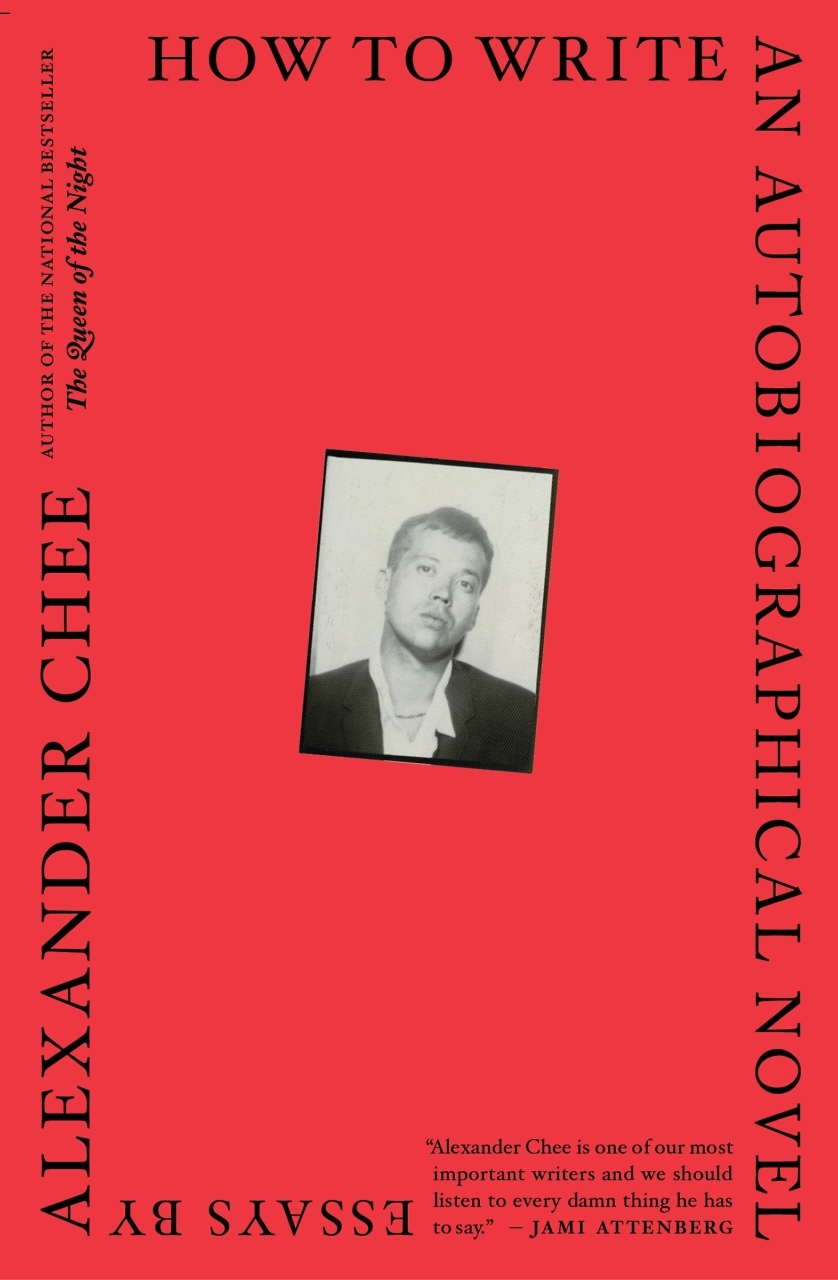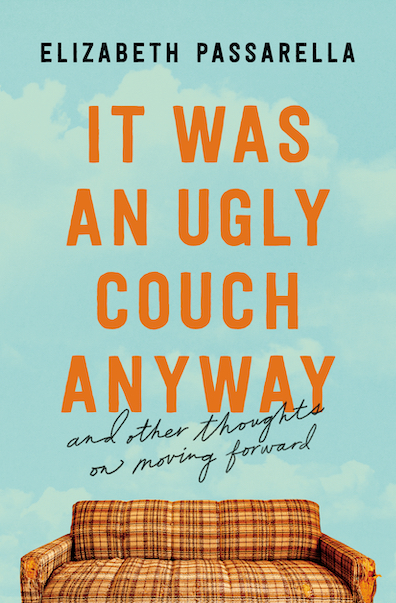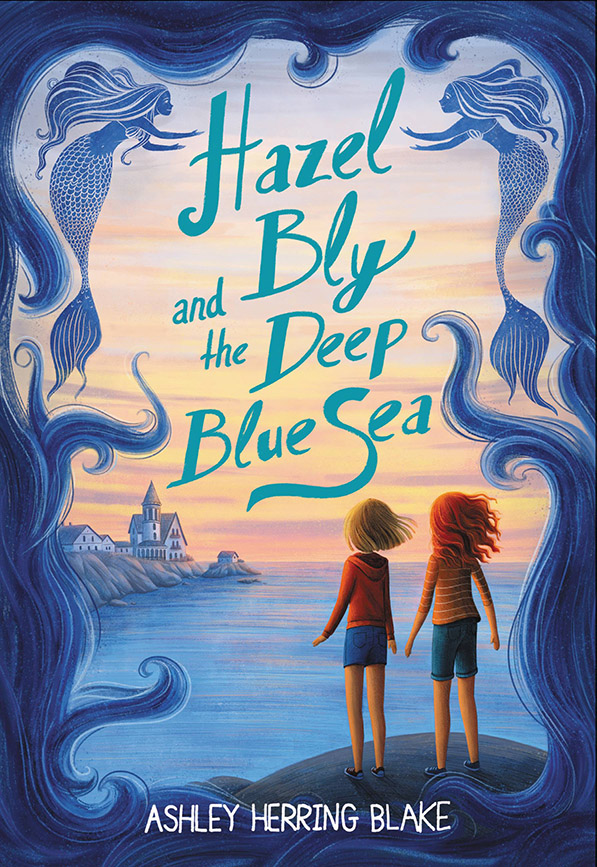Doing the Work
Nikky Finney’s fifth poetry collection is an essential collage of life and art
A poet’s autobiography is his poetry,” said Russian poet Yevgeny Yevtushenko. “Anything else is just a footnote.” In her fifth poetry collection, National Book Award-winning poet Nikky Finney says no to this. She stacks new poems alongside artifacts of her life, handing us an immaculately curated book that integrates her “footnotes” into an essential collage of life and art.
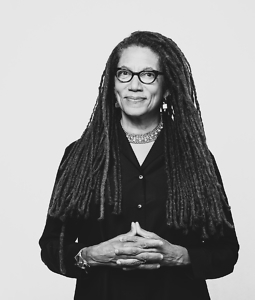
Love Child’s Hotbed of Occasional Poetry, the poet’s first new collection in nearly 10 years, demonstrates how Finney continues to push herself and expand our idea of poetry’s scope. Poems written to commemorate a particular event or milestone are known as “occasional” poems, and Finney fell into composing such poetry early in her life as a “girl with pencils in her hair and behind her ear,” she writes, called to commemorate notable moments: “Mrs. Robinson’s eightieth birthday or the fiftieth anniversary of the Women’s Choir or an annual Easter Sunday service circa 1969.” Many of the poems included in this collection were commissioned to mark public occasions, such as honoring of female athletes for espnW. Others are simply Finney practicing what she calls “good devotional work” by allowing moments with art (ekphrasis) and personal and collective history to create the occasion for a poem.
Nestled among these elegant poems we find essays and “hotbeds.” A hotbed, as Finney defines it, is “heated earth (soil) … used for germination of seeds, favoring rapid growth.” A keeper of journals most of her life, Finney considers these creative entries her decades-long hotbeds and includes more than 30 of them. The poet’s lens is a desired lens, and the offerings of the hotbeds translate into a uniquely intimate way to take on Finney’s sight.
As in much of Finney’s previous work, she invites us into her vision of race, gender, family, relationship to the land, and love with many long poems worthy of the space. But this collection is different. Part lyrical insurgency, part memoir, part fantasy, it tells us how Finney came to be a poet and shows us the land, people, and artifacts that helped her get there. This collection is as much about South Carolina as it is about her father as it is about her heroes as it is about the weight of the pencil in her Black hands in a hurting United States:
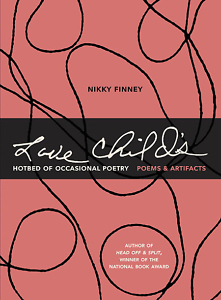 I asked my father what an insurgent was. It had been the word used in the play to describe Lorraine Hansberry. He looked at me. He looked away from me. He looked out of the window. I knew he knew what it meant. He didn’t want to say. He didn’t want me to know, not yet.
I asked my father what an insurgent was. It had been the word used in the play to describe Lorraine Hansberry. He looked at me. He looked away from me. He looked out of the window. I knew he knew what it meant. He didn’t want to say. He didn’t want me to know, not yet.
But early flirtations with insurgency help her write much-needed work, like the 9-page poem on the occasion of Tamir Rice’s public slaughter and the nearly 20-page poem about 14-year-old George J. Stinney Jr., electrocuted in South Carolina in 1944.
In addition to the lengthened poems in this collection, the book quite literally stands apart from her past work. At 7” x 9.5” trim and 264 pages within a thick board binding, it looms taller on the shelf and weighs more in the hands than her previous collections. Opening it feels like flipping the lid of a small treasure box. Inside we’re immediately greeted with her personal treasures: images of art she keeps in her home, full-color splendors of letters penned by a 10-year-old Finney on lime-green floral stationery and signed with her given name, Lynn. A clipping from her hometown newspaper in 1985 announces a reading from her first published book at the local Kroger Sav-On store. We witness a 1984 letter typed from William Morrow & Co. Publishers who, though intrigued by the “almost mystical” quality of her poetry, express concerns about the ability of poetry to sell, especially in hardback (an irony that feels extra weighted now, knowing Finney’s legacy and holding a nearly 2-pound hardback collection of her work).
Among the most important treasures are the facsimiles of notes from her father, the Honorable Ernest A. Finney Jr. — a legacy not only to his family but to the state of South Carolina. (I, too, am a Carolina girl who grew up hearing the celebrations and achievements of the first African American to serve as Chief Justice of the Supreme Court of the state since Reconstruction, committed to justice and eradicating capital punishment. The Finney legacy is a South Carolina legacy.)
These notes threaded throughout the book let us grieve alongside her after her father’s 2017 death. He reminded her of his love on Post-it Notes, letterhead of the courts, on random cardstock, and a yellow page ripped from a legal pad. He sent birthday messages, notes of pride about her first book, tender reminders that testify to how language always existed in her blood: “[Y]ou are with me, wherever I am and I know if you had not been born to us I would still be looking for you,” he writes in one note. Most of these messages he addressed to “Love Child,” his affectionate nickname for Finney and the inspiration for the title of this book.
It’s a book about the many loves that lead her to writing. In an essay “Inquisitor and Insurgent: Black Woman with Pencil, Sharpened,” Finney introduces us to her love for pencils, preferably #1 lead. We also discover the early thinkers, poets, and writers who sharpened her passion and skills: Barbara Jordan, Lorraine Hansberry, Nikki Giovanni, Sonia Sanchez, Toni Cade Bambara, and others.
She elevates art with ekphrastic pieces based on photographs of two male lovers, a woman sitting on a long pew with a hoe in her hand, and a little boy alone amidst a blanket of clover. She delivers one of the more haunting poems of the book through a visual image, as well — on the occasion of Polly Sheppard surviving the massacre at Charleston’s Mother Emanuel AME in “Miss Polly Is Akimbo underneath the Mother Emanual Collection Table”:
The one who came to start the next Civil War
Speaks to her directly. Have I shot you yet?
There is no one else left to answer.
I heard Finney read from this collection-in-progress last year before Toni Morrison’s August 2019 death, and I remember being especially a fan of “Hotbed #58,” a whimsical tale — part fact, part fiction — about Finney driving Ms. Morrison around Sweden after the Nobel Prize ceremony. It’s another standout toward the end of Love Child’s, which feels especially poignant following Morrison’s death. Finney begins the collection with the legacy of writers who inspire her and ends with this dreamlike moment that birthed a personal mantra for her: Ms. Morrison asking her, “You working?”
Yes, Finney is working. And she’s worked for almost six decades. And she’s inspiring young poets to draw near to their collection of pencils and do the work. Do the work in ways it’s never been done before.
[This article originally appeared on September 24, 2020.]
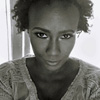
Ciona Rouse is the author of the chapbook Vantablack (Third Man Books, 2017). Her poetry has appeared in Oxford American, NPR Music, The Account, Talking River, Gabby Journal, and other publications. She is poetry editor of Wordpeace. Along with poet Kendra DeColo, Rouse hosts the literary podcast Re\VERB.
